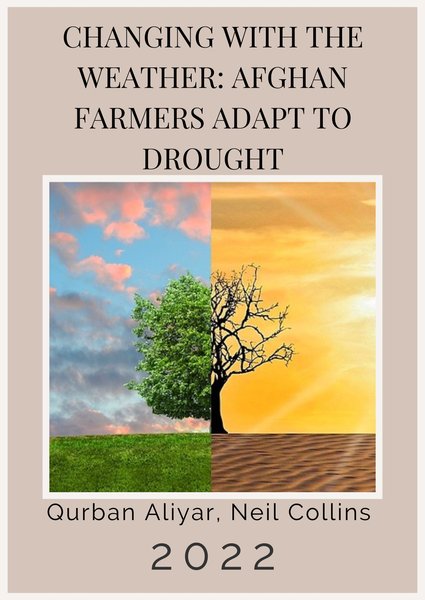




Year: 2022
Collections: Scientific Publications
Topics: Climate
Authors: Aliyar Qurban, Collins Neil
Countries: Afghanistan
Source:
Downloads:
Drought is one of the significant impacts of climate change affecting agricultural productivity and subsistence for Afghanistan’s farmers. Producers have applied various adaptation measures making use of their native resources in response to drought. Studying the cases of the Panjab and Waras districts in the south of Bamyan province of Afghanistan, this research aims to analyse Afghan farmers’ drought adaptation strategies. Farmers’ adaptation strategies to drought and the effectiveness of such actions to decrease the effects of this natural hazard were studied. The adaptive strategies were categorised into five groups, including: (i) cropping practices, (ii) soil and water conservation, (iii) animal husbandry management, (iv) wage labour use and (v) financial management. Major adaptive strategies for cropping practices include growing early maturing crops, drought-tolerant crops, inter-cultivation systems, changing cropping patterns, seed treatments, growing non-traditional crops and crop rotation. Soil and water conservation adaptive actions include bund construction, watering at night, levelling land, decreasing irrigated areas, reducing water wastage and small-scale watershed management. Drought responses for livestock included supplementary feed, increased rearing of small animals, fodder cultivation and storage. Non-farm adaptive strategies to augment income include production of handicrafts, additional unpaid family labour, borrowing money, reducing expenditures for non-food and costly food items, migration, selling assets and discontinuing agricultural activities due to drought. Data for this study was collected using a field survey with questionnaires and face-to-face semi-structured interviews with 140 farmers from Panjab and Waras districts in the study area. One of the main issues was the necessity and importance of expanding the Technical and Vocational Education and Training (TVET) support programmes for the adaptation strategies.
По всем вопросам сотрудничества обращайтесь по эл.адресу или телефону: